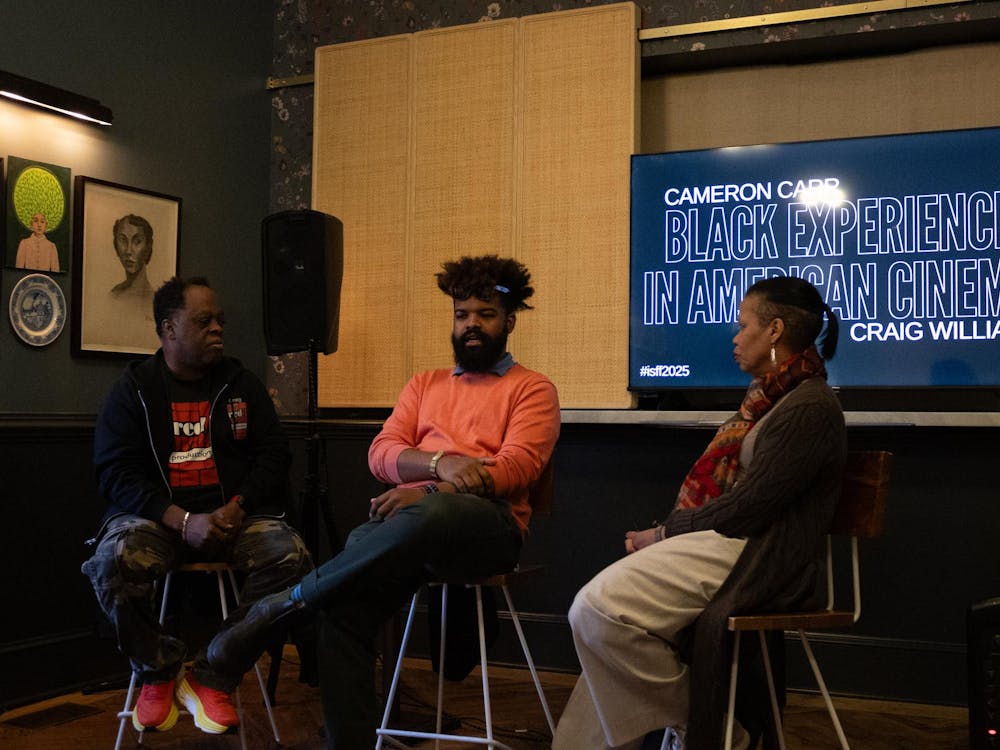Taylor Swift’s albums have long been known as distinct, individual pieces, each signifying a dramatic shift from the previous. Following up the minimalist, folk and alternative-inspired “folklore” and “evermore,” Swift once again did what she does best — evolved. Maintaining the contemplative themes found in her most recent work while harkening back to her famous pop sound, “Midnights” is Swift’s next step forward.
In both its style and subject matter, the album’s opener “Lavender Haze” sets the tone for the rest of the album. The song addresses themes current to her more recent albums — love, and holding onto it under public scrutiny — whilst reviving the iconic synth-pop sounds of “1989” with a mature new feel.
The second track “Maroon” continues this dreamlike sound, but brings a new melancholic tone and introduces some of the album’s darker themes. Swift’s vocal skill, specifically her ability to convey emotion vocally, shines through on this song.
But the next track highlights an issue present at several points throughout the album — it seems as if Swift was too focused on maintaining a purely pop style, resulting in songs that feel thematically and sonically disconnected. The album’s third track and lead single “Anti-Hero” offers some of the boldest individual lines, with standout lyrics like “When my depression works the graveyard shift / all of the people I've ghosted stand there in the room,” yet lacks a sense of cohesion from one line or couplet to the next. The song’s meaning is further obscured by its confusing upbeat tempo and overdone production.
The highly anticipated “Snow On The Beach (feat. Lana Del Rey)” has a peaceful melody and strong lyrics. However, despite her mention in the track’s title, Del Rey is given disappointingly little time on the track. By featuring Del Rey for only backup vocals and a couple stray lines, Swift teases what could have been an incredible collaboration but, continuing the trend of many of her other female features — like “Breathe (feat. Colbie Caillat)” and “no body, no crime (feat. HAIM)” — fails to offer it.
“You’re On Your Own, Kid” is a high point on the album and a triumph of Swift’s renowned lyricism. In this raw and intimate narrative, Swift introspects on her continual reliance on others. Line after line, Swift delves further into some of her most significant regrets and learned lessons — “I gave my blood, sweat, and tears for this / I hosted parties and starved my body / like I'd be saved by a perfect kiss”.
“Bejeweled,” by contrast, is the album’s lowest point. The previous cohesive sound and quality of the album is derailed — the production is overdone, the stray “nice” following each chorus feels misplaced, and the song’s subject matter distracts from the genuine and personal themes found on the album thus far.
“Labyrinth” is one of Swift’s finest vocal performances. The simpler beat allows her delicate vocals to shine through, finding a moment of tranquility in between some of the album’s more heavily produced and less serious songs. Its straightforward lyrics encapsulate the mood of the song perfectly, as Swift reminds herself to “breathe in, breathe through, breathe out.”
The final two songs tie together the whole album by clarifying the major theme of “Midnights” — love. In “Mastermind”, Swift confesses the calculated formulation of her relationship only to break down the underlying reasons for her actions — “No one wanted to play with me as a little kid / so I’ve been scheming like a criminal ever since / to make them love me and make it seem effortless.”
This song is the perfect blend of the most prominent themes and sounds from the album, ending it on a bittersweet note that perfectly encapsulates the album’s overall message — an acknowledgement of flaws and insecurities, but an appreciation for what they have offered Swift.
But a review of “Midnights” would not be complete without mentioning the shock that Swift gave fans when, just three hours after the album’s initial release, she added seven more tracks in a special “Midnights (3am Edition).”
Although not every song compares to the original album, the extended version includes some of the most compelling songs on the entire album. “Bigger Than The Whole Sky” is one of the most emotional songs on all of “Midnights,” with Swift stripping down the production to highlight pure vocals and a wistful melody.
In “Would’ve, Could’ve, Should’ve,” Swift expands on the retrospective themes seen throughout the album, creating what is possibly the most impactful song on the album and certainly the greatest addition from the “3am Edition.” With passionate vocals and vicious lyrics — “Living for the thrill of hitting you where it hurts / Give me back my girlhood, it was mine first” — this song releases the rage lying behind Swift’s regret, a shift from the more muted sadness found on many previous songs.
“Midnights” is an exploration and celebration of Swift’s most personal moments. Despite a few stumbles and weaker points throughout, Swift showcases some of her best lyricism yet and a newly developed sound in this stunning addition to her ever-growing discography.







